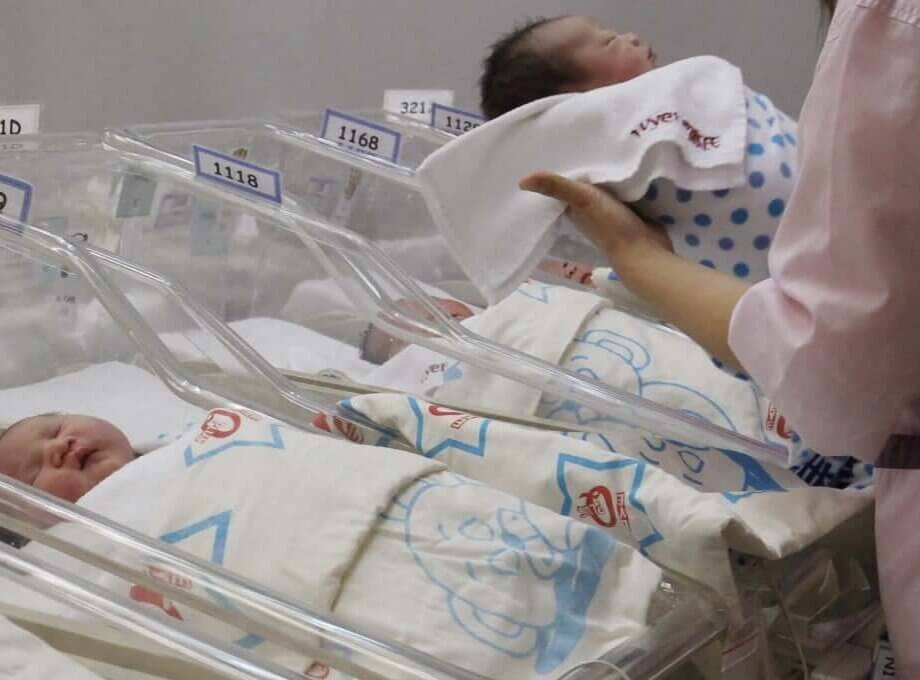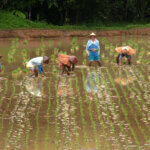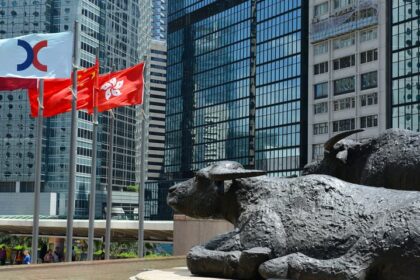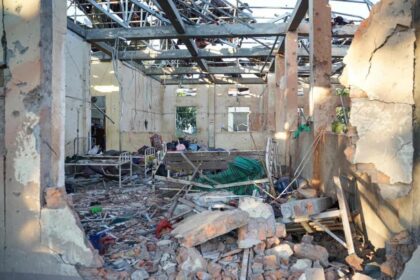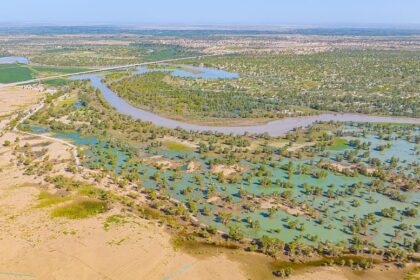Introduction: A Milestone in Neonatal Healthcare
In January 2025, Hong Kong launched its first-ever breast milk bank at the Hong Kong Children’s Hospital, marking a significant advancement in neonatal healthcare for the city. Within just six months, the Hong Kong Breast Milk Bank (HKBMB) has already supported more than 120 premature or critically ill newborns, collected nearly 900 liters of donated breast milk from over 230 registered mothers, and come close to meeting its initial annual collection target. This initiative is not only a testament to the city’s commitment to child health but also a reflection of the compassion and solidarity among Hong Kong’s mothers and healthcare professionals.
- Introduction: A Milestone in Neonatal Healthcare
- Why Breast Milk Matters for Vulnerable Infants
- How the Hong Kong Breast Milk Bank Operates
- Stories of Hope: Donors and Recipients
- Medical Impact: Saving Lives and Improving Outcomes
- Challenges and Cultural Considerations
- Global Context: Human Milk Banks Around the World
- Community Response and Future Prospects
- In Summary
Why Breast Milk Matters for Vulnerable Infants
Breast milk is widely recognized as the optimal source of nutrition for infants, especially those born prematurely or with critical health conditions. Unlike formula, breast milk contains a unique combination of nutrients, antibodies, and bioactive factors that are essential for the growth, development, and immune protection of newborns. For preterm infants—whose digestive systems are often underdeveloped—breast milk is easier to digest and absorb, reducing the risk of feeding intolerance and severe complications.
One of the most serious threats to premature babies is necrotizing enterocolitis (NEC), a life-threatening intestinal disease. Scientific research has shown that breast milk, with its rich content of long-chain polyunsaturated fatty acids, human milk oligosaccharides, lactoferrin, and other immune-boosting components, significantly lowers the risk of NEC and other infections. According to a recent review, these nutrients not only support organ development but also help shape a healthy gut microbiome, further protecting vulnerable infants from disease.
How the Hong Kong Breast Milk Bank Operates
The HKBMB is managed by the Hospital Authority and operates out of the Hong Kong Children’s Hospital. Its primary mission is to collect, process, and distribute safe, high-quality donor breast milk to infants in need, particularly those in neonatal intensive care units (NICUs) across nine public hospitals. The process is meticulously designed to ensure safety and quality at every step:
- Donor Recruitment and Screening: Only mothers who are currently lactating and have babies under one year old are eligible to donate. Donors undergo thorough health assessments, including blood tests for infectious diseases such as HIV, hepatitis B and C, and syphilis. Lifestyle factors—such as smoking, drug use, and excessive caffeine or alcohol intake—are also considered.
- Milk Collection and Handling: Donors express and freeze their milk at home, ensuring it is stored separately from other foods. Once a donor has accumulated about two liters, the bank arranges for a designated courier to collect the milk, maintaining strict temperature controls during transport.
- Processing and Testing: Upon arrival at the bank, the milk is pasteurized, tested for bacterial contamination, and analyzed for nutritional content. Only milk that meets rigorous safety standards is repackaged and distributed to hospitals.
- Prescription and Distribution: Physicians prescribe donor milk to eligible infants, with parental consent. The milk is then delivered to NICUs, where it is administered under medical supervision.
This comprehensive system ensures that every drop of donated milk is safe, nutritious, and life-saving for the infants who receive it.
Stories of Hope: Donors and Recipients
The success of the HKBMB is built on the generosity and resilience of Hong Kong’s mothers. Many donors, like Yoyo Chan, are motivated by personal experiences and a desire to help others. Chan, who had suffered two miscarriages before giving birth to her daughter, felt a deep connection to mothers of premature and sick infants. She described the donation process as challenging but rewarding, expressing pride in being able to support other families during their most vulnerable moments.
Another donor, Ida, managed to contribute 16 liters of breast milk before her son turned one. She wrote messages of encouragement on her final donation, hoping to bring comfort to recipient families. For many donors, the act of giving is not just about providing nutrition—it’s about sharing hope, love, and solidarity with other parents.
On the recipient side, families like that of Aqsa, whose premature son was admitted to the NICU, have experienced firsthand the life-changing impact of donor milk. Aqsa struggled with insufficient milk production and was introduced to the HKBMB by hospital staff. She credits the donated milk with helping her son gain weight and recover from illness, expressing deep gratitude to the mothers who made such a difference in her child’s life.
Medical Impact: Saving Lives and Improving Outcomes
The clinical benefits of donor breast milk are well-documented. For preterm and critically ill infants, receiving breast milk instead of formula can mean the difference between life and death. According to Dr. Rosanna Wong, Director of the HKBMB, breast milk not only provides essential nutrients but also acts as a therapeutic agent, reducing the risk of infections, feeding intolerance, and severe gastrointestinal diseases like NEC.
Internationally, the use of donor human milk has been associated with lower rates of infant morbidity and mortality. In countries like India and South Africa, where human milk banks have been established for years, thousands of vulnerable newborns have been saved through access to safe, donated milk. The World Health Organization (WHO) recommends exclusive breastfeeding for the first six months of life, and donor milk is considered the next best option when a mother’s own milk is unavailable.
Challenges and Cultural Considerations
Despite its success, the HKBMB faces several challenges. The breastfeeding rate in Hong Kong, while improving, still lags behind global targets. Many mothers stop breastfeeding within six months, often due to work commitments or lack of support. Social attitudes toward breastfeeding and milk donation can also be a barrier. Some mothers report discomfort or stigma when expressing milk in public, and there is a need for better facilities and greater public awareness.
Cultural beliefs and safety concerns also play a role in the acceptance of donor milk. Studies from other regions, such as South Africa, highlight hesitancy among some mothers due to fears of disease transmission or concerns about bonding. The HKBMB addresses these issues through rigorous screening, pasteurization, and education, but ongoing efforts are needed to build trust and normalize milk donation as a compassionate, community-driven act.
Global Context: Human Milk Banks Around the World
Hong Kong’s breast milk bank joins a growing global movement to ensure that all infants—regardless of their circumstances—have access to the life-saving benefits of human milk. More than 600 human milk banks operate worldwide, each adapting to local needs and resources. In India, for example, milk banks are integrated with breastfeeding support and education programs, contributing to significant reductions in infant mortality and improved long-term health outcomes.
Organizations like PATH and UNICEF advocate for the integration of human milk banking into national health systems, emphasizing the need for global standards, quality control, and community engagement. The experience of countries with established milk banks demonstrates that, with the right support and infrastructure, donor milk can be a powerful tool for improving child health and survival.
Community Response and Future Prospects
The response to the HKBMB has been overwhelmingly positive. Healthcare professionals, government officials, and community organizations have praised the initiative for its impact and potential. Secretary for Health Lo Chungmau described the bank’s creation as a demonstration of decisive government action and effective execution, achieved through broad societal cooperation.
UNICEF Hong Kong has welcomed the program, highlighting its role in giving preterm and critically ill infants the best possible start in life. The Hospital Authority continues to encourage more mothers to become donors, emphasizing that every contribution—no matter how small—can make a difference.
Looking ahead, the HKBMB aims to expand its reach, increase donor recruitment, and further integrate breastfeeding support into maternal and child health services. The goal is to collect at least 1,000 liters of breast milk annually, benefiting up to 600 infants each year. Continued public education, improved facilities, and supportive policies will be key to sustaining and growing this life-saving service.
In Summary
- Hong Kong’s first breast milk bank has supported over 120 premature or critically ill infants in its first six months, collecting nearly 900 liters of donated milk from more than 230 mothers.
- Breast milk is especially vital for preterm and sick infants, reducing the risk of severe diseases like necrotizing enterocolitis and boosting immunity.
- The HKBMB operates with strict safety protocols, including donor screening, milk pasteurization, and medical supervision of distribution.
- Donor and recipient families have shared powerful stories of hope, gratitude, and community support.
- Challenges remain, including increasing breastfeeding rates, addressing cultural concerns, and expanding public awareness.
- Globally, human milk banks are recognized as essential components of newborn care, with proven benefits for infant health and survival.
- The HKBMB’s success reflects Hong Kong’s commitment to child health and the compassion of its community, setting a benchmark for future initiatives.


